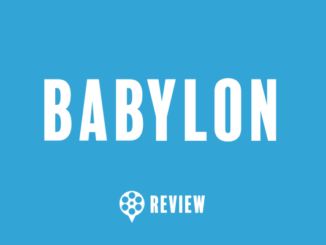35 years ago, the imperfect masterpiece known as Blade Runner was released. It’s a film that initially was not well received by critics. Some critics wrote that the plot of the film played second fiddle to the film’s special effects, and failed to fit the studio’s marketing as an action/adventure movie, in turn, misleading the audience’s expectations. The slow pace of the film was also a deterrent to viewers of the film as they viewed it as boring. Sheila Benson from the Los Angeles Times went on to call it “Blade Crawler.” Not until 2008 when the Final Cut of the film was released did the film really start gaining steam as not only a cult classic but one of the finest sci-fi films ever made.
Fast forward to 2017 and not only was a new Blade Runner on the way, but a Blade Runner directed by one of the finest directors in Hollywood, Denis Villeneuve, and shot by the great Roger Deakins. It was hard not to be excited for this combination to take on one of the most beloved films of all time and provide fans with its sequel. While unusual to release a sequel thirty-five years later, it does not take away from the fact that this film does a great job on expanding on the themes of the original, rather than just trying to cash in on title recognition, Blade Runner 2049 is its own entity while respecting the legacy of its predecessor.
During the early screenings of the film, the filmmakers and the studio issued an extensive list of film plots they did not want spoiled in reviews. Despite the film’s release, I will also not be sharing much of the plot of the film as in reality, the less you know, the better. This film is one to sit back and enjoy and take it all in.
While Blade Runner dealt with the idea of perception of reality, replicants were synthetic beings made to be “more human than human,” and in turn, they were made to blend in like chameleons with society. Because of the memories that were implanted in them, there were replicants that thought they were humans. Blade Runner was a film that examined the idea that if artificial intelligence becomes too advanced, it could have trouble accepting the moment they realize that they, in fact, are not human.
Blade Runner 2049 finds a perfect way to explore how that theory might have evolved in the thirty years after the events of the original film. While the film may be a tad long to casual filmgoers at two hours and forty-five minutes, the films time length gives enough time for Denis to dig deep and examine these theories. If there is one non-spoiler comment about the plot that connects beautifully to the theories set by the original and blended into this film is Ryan Gosling’s K’s discovery of a whole new wrinkle in replicants, that may change everyone looks at them.
One concern I had about the film was the use of Deckard. The way Blade Runner concludes left me to believe that Deckard was a replicant. Blade Runner 2049 does a great job of answering that question without point blank telling you. Deckard is placed into K’s revelation in a manner that’s a natural progression of not only his character but how we left him at the end of Scott’s film. Harrison Ford’s take on Deckard in this film is one of his finest performances in quite some time.
Director Denis Villeneuve has added another film to his resume that adds to the debate as to whether or not he is Hollywood’s best director at the moment. Villeneuve has become a director in which his films are highly anticipated on a consistent basis because of how impressive they are. From Enemy to Sicario and now Blade Runner 2049, Villeneuve has shown range in the films he has directed that makes it difficult to argue his effectiveness and greatness. With Blade Runner 2049, he maintains the noir-ish tone Scott so beautifully established more than three decades ago, while adding sprinkles that keep the audience invested.
There is no Blade Runner 2049 review that should be written without praising the work of Roger Deakins’ cinematography. While earning praise for his work on films as diverse as The Big Lebowski, The Assassination of Jesse James by the Coward Robert Ford, Skyfall, and most recently Sicario, Deakins’ work on Blade Runner 2049 represents a professional high point in his career. Deakins use of shadows throughout the film increase the mystery surrounding certain characters and creates an ambiance complimenting the film’s themes making every single shot in the film worth the watch. It would be a travesty if Deakins does not win the Academy Award for his work on this film.
While Blade Runner 2049 continues the disconnect between casual filmgoers and cinephiles, it is on track to follow the same path as its predecessor as an imperfect masterpiece, and up there with 2016’s Arrival as Denis Villeneuve’s best film.





